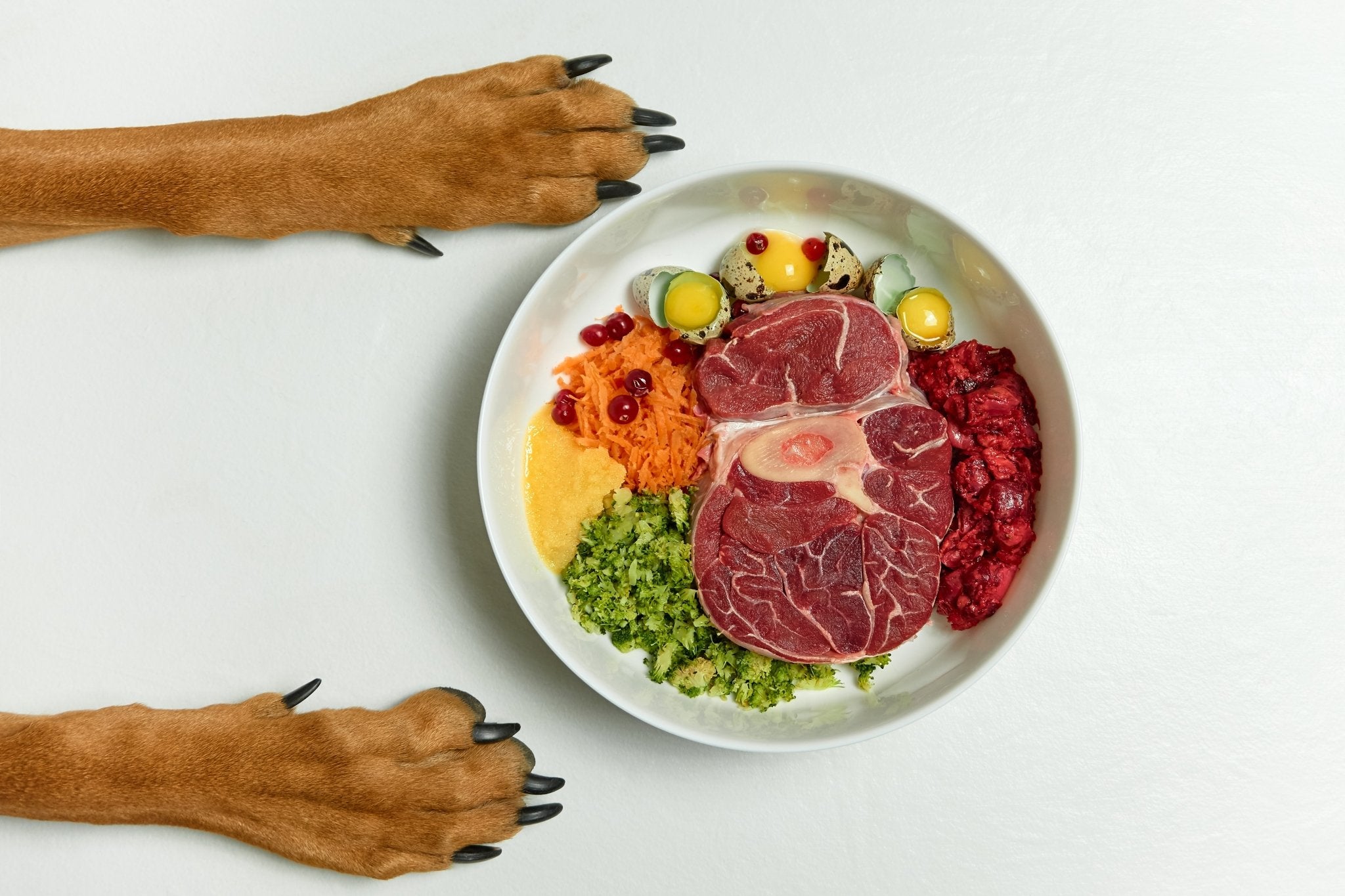Pet parents prefer home-cooked food over kibble for their pets because they feel like they have more control over the ingredients. If prepared properly, homemade meals can serve as a suitable substitute for dog food. However, preparing and feeding your dog home-cooked food involves several factors.
Here are 5 things to think about before switching to home-cooked meals:
1. Home-cooked meals may not be completely balanced
Homemade foods frequently lack the full complement of nutrients that dogs need. You need to develop a suitable diet that offers the right number of calories, vitamins, and minerals since their requirements differ from ours. They require precisely balanced amounts of both macro and micronutrients. This is why, unlike dog food, home-cooked meals require the addition of supplements to prevent deficiencies.
Consuming calories improperly can cause obesity and related diseases. Concerns can occur even in meticulously planned meals created by veterinarians or veterinary nutritionists when bioavailability problems or nutritional interactions are not taken into consideration.
Homemade meals are thus an absolute no-no for pups and pregnant dogs. The margin of error in their nutritional requirements is quite limited, and their dietary needs alter dramatically in a short period of time. Young puppies and foetuses may have trouble growing if they have any deficiencies.
2. Recipes for home-cooked meals are unreliable.
A home-cooked meal does not mean that one can get away with feeding their dog only chicken and rice. Keep in mind the requirements of the dogs concerning their breed, age, and lifestyle while formulating recipes.
It appears that the majority of recipes available online or even in veterinary textbooks are lacking in one or more nutrients crucial for optimal health. More than 90% of the homemade dog food recipes you may find online may not be good for your dog, according to a 2013 study published in the Journal of the American Veterinary Association.
3. You need to invest time and money
Cook fresh food every day if you are thinking about feeding your dog home-cooked meals. You must possess all the essential ingredients. You need to ensure that the quality of these ingredients is good. Follow recipes straight to the letter to guarantee that they are correctly balanced.
Pet parents must invest a significant amount of time and effort into this. How you prepare their meal determines the nutrients available to them. As a result, many pet parents eventually start making recipe substitutions. Nutritionists at Tufts University conducted research to assess how well their clients were able to adhere to the home-cooked diet plans for dogs developed by their Nutrition Service. Only 13 percent of owners were still using the original nutritionally balanced diet plan, they discovered.
There is no proof that feeding a home-cooked diet has any nutritional or health benefits for the majority of pets when compared to commercial diets, and the reality is that feeding a home-cooked diet is frequently significantly more time- and money-consuming than feeding a high-quality commercial diet.
4. You can put your pet at risk for infections.
Home cooking is difficult, and people sometimes lack the time to accomplish it. As a result, they are forced to prepare and freeze food in batches. If you do not store the food properly, there can be bacterial growth in the food that is being served to your pet. Salmonella or E. coli are frequently present in uncooked meat. Your pet may experience digestive problems if suitable cooking and storage techniques are not used.
5. The quality of foods prepared at home is unregulated.
Unlike commercial dog food, there is no governing agency for home-cooked food. In commercial dog foods, the nutrient profile is analyzed. This information is displayed on the back of every bag of dog food. There is no such constraint on the number of nutrients and the grade of ingredients used when cooking at home. You might buy low-quality products, or if you follow online recipes, you might end up giving your dog food that contains harmful components like xylitol and garlic. Additionally, the uniformity found in commercial dog food is absent from home-cooked meals.
Seek the advice of a veterinarian or veterinary nutritionist to develop an appropriate recipe if you are still determined that feeding your dog home-cooked meals may be beneficial. Alternatively a simpler way is to explore our curated recipes to feed your loved dogs at Perfekt's product page. For advice on the supplements, you should include in your dog's diet, talk to a veterinarian. Additionally, keep an eye on your dog's health while they are eating this food to make sure they are doing well and are free of any infections or deficiencies.





